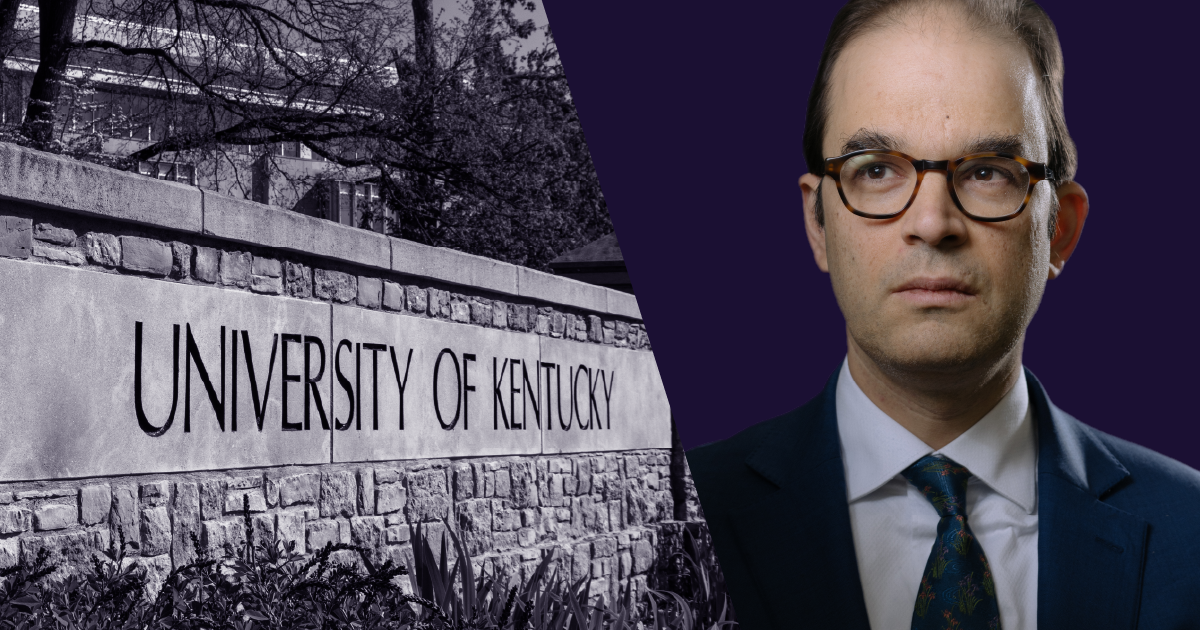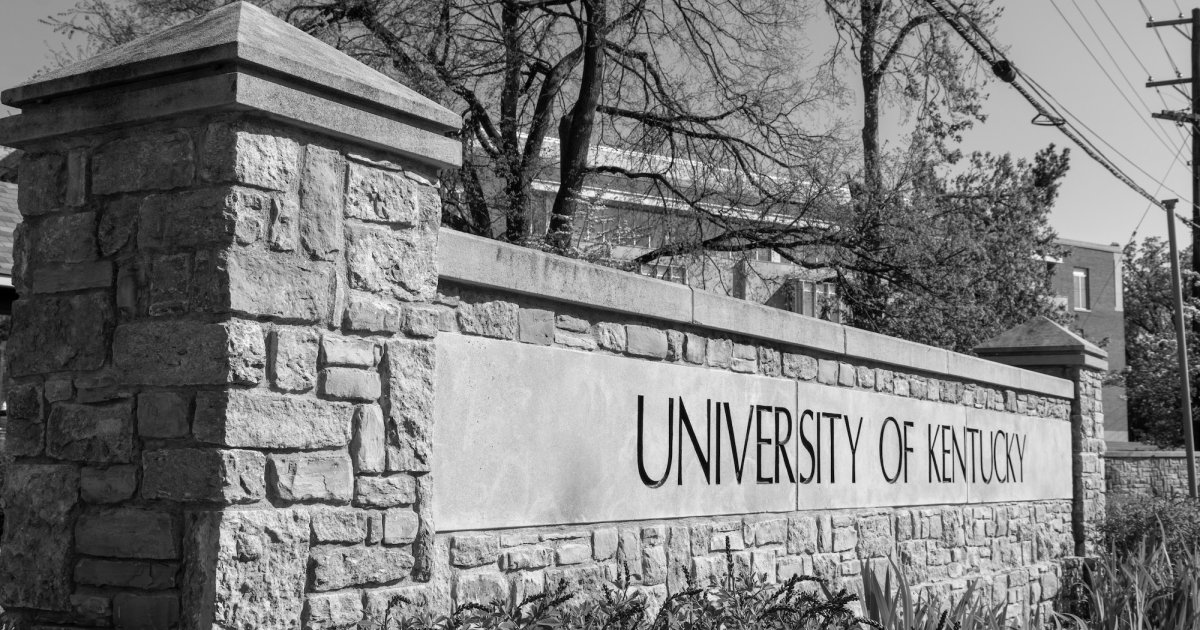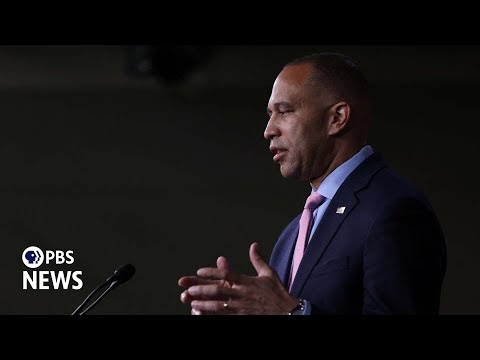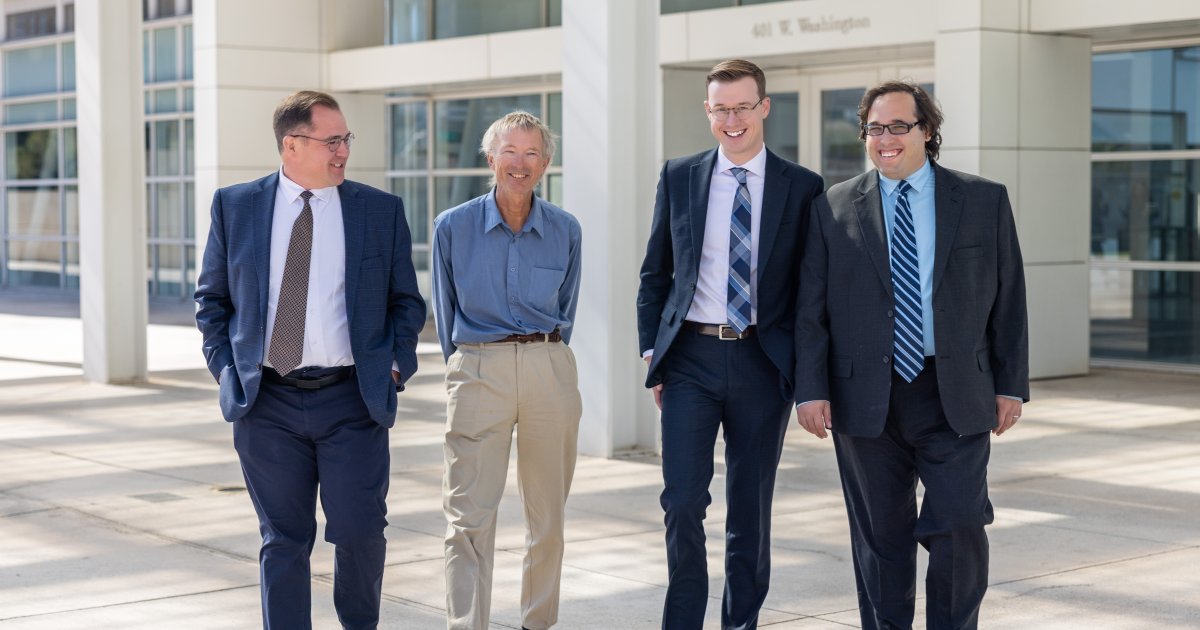The University of Kentucky suspended tenured professor Ramsi Woodcock in July for his comments about Israel. Now, Woodcock is suing his university for violating his First Amendment rights.
Woodcock’s lawsuit, filed last week in federal district court in Kentucky, asks the judge for two things: let him go back to teaching and stop the university from enforcing the International Holocaust Remembrance Alliance’s definition of antisemitism.
TAKE ACTION: Stop University of Kentucky’s Free Speech Crackdown
The lawsuit lays out a damning timeline of UK’s abuse of his First Amendment rights. Woodcock, long an outspoken critic of Israel, remained steadily employed at UK for seven years, gaining tenure in 2022 and a promotion to full professorship this year. But less than two weeks after his promotion, UK removed him from teaching and banned him from campus. This was purportedly because of unspecified complaints about his petition to a faculty listserv in March 2024, more than a year earlier, calling for global war against Israel and its annihilation. On his website, antizionist.net, he claims Israel is waging a genocide and that the world has a “moral duty” to step in.
After UK suspended Woodcock, describing his online petition as “calling for the destruction of a people based on national origin,” FIRE’s Faculty Legal Defense Fund, which provides legal resources for faculty free of charge, intervened with UK to explain that Woodcock’s speech was protected by the First Amendment. While members of the public or UK’s community may have taken offense to Woodcock’s strong views about Israel, faculty members have the First Amendment right to present arguments on matters of public concern outside the classroom. Using Woodcock’s speech as a cudgel to remove him from the classroom was a clear violation of his expressive rights as a faculty member at UK.
The FLDF also announced that Joe Childers, a Kentucky-based attorney, would defend Woodcock through the university’s investigative process. Now Woodcock is taking his fight to court. The Council on American-Islamic Relations (CAIR) is representing Woodcock in the lawsuit, with help from the Chicago-based law firm Kapitan Gomaa Law. Childers is serving as local counsel.
“The University’s suspension of Professor Woodcock violates his First Amendment right of freedom of expression and his right to procedural due process, discriminates against him in violation of the Civil Rights Act of 1866, threatens the democratic principles which sustain this Country’s form of government, and degrades the quality of education at the University of Kentucky,” the lawsuit states.
A university cannot censor the ideas it dislikes out of existence. And it certainly cannot punish its own faculty for making provocative arguments both at the university and in the court of public opinion. FIRE will keep readers apprised about the status of Woodcock’s lawsuit.
If you are a public university or college professor facing investigations or punishment for your speech, contact the Faculty Legal Defense Fund: Submit a case or call the 24-hour hotline at 254-500-FLDF (3533).





